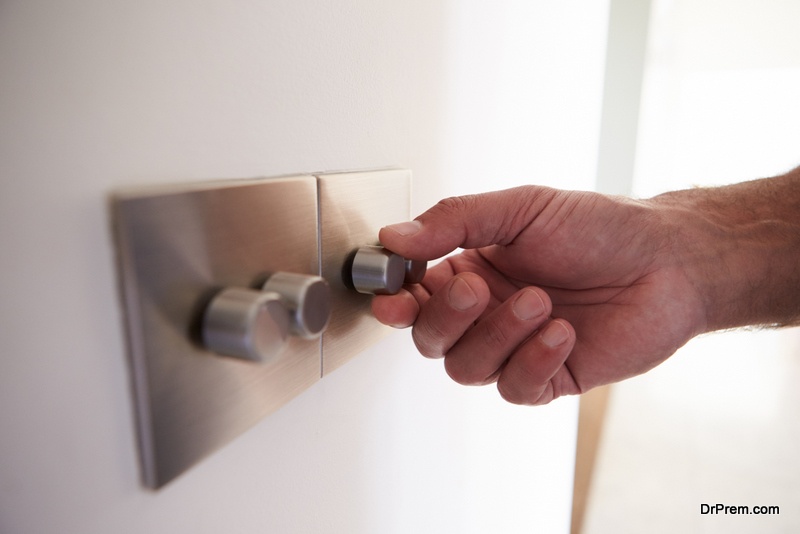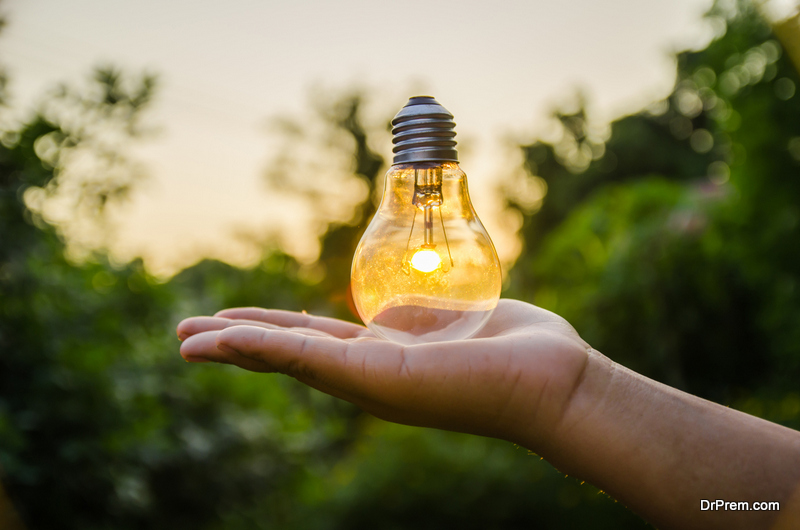With so many stories in the news lately about the devastating impact that climate change is having on the planet, it’s natural to want to do as much as we can to protect the environment. It might seem like a formidable challenge, but there are actually lots of little changes we can make at home that are not only eco-friendly but can also save you some money. Talk about a win-win situation! Read on to discover some top tips for living a lifestyle that’s good for both the planet and your wallet.
1. Use less electricity

Decreasing the amount of electricity you use is a fantastic way to reduce your household bills and also protect the planet. For example, make sure that you use eco-friendly lightbulbs, turn off all your appliances and lights when they’re not in use, plus unplug your phone and laptop chargers as soon as your battery is full. You might be surprised at how much energy – and money – is wasted by electronics that are left on standby! According to consumer finance expert Cash Lady, “small changes such as these can really add up and make a big difference to your utility bills, putting more money in your pocket and helping the environment at the same time”.
When the time comes to replace appliances such as your fridge, freezer and television, make sure that you choose eco-friendly models that are more efficient and don’t use as much power. These days most appliances have a rating that makes it easy to see which are the greenest. You can also try lowering the temperature that you wash your clothes at to 30 degrees or choosing the eco mode on your dishwasher. Likewise, when the weather is warm, hang your clothes up to air dry rather than using a tumble dryer. If you own your home, you could even consider having solar panels installed. This is a larger cost upfront, but over time can slash the amount you spend on bills.
2. Be sensible with heating
We of course want to be comfortable inside our homes, but that doesn’t mean we have to turn the heating up high whenever the weather is cold. A good step you can take is to check that your house is well insulated, as this will prevent hot air from being lost to the outside or cold air creeping in. House Beautiful has some great cost-effective tips for draft proofing your property, which will help reduce both your bills and your carbon footprint. For those who own their own homes, you might want to consider having more thorough insulation put in. Again, this is a larger cost upfront, but over time will save you more money – walls and attics are prime locations for insulation. Installing double glazed windows is another effective method of keeping heat in (and noise out) if you don’t already have them.
Another tip is to turn your thermostat down by just one degree. You probably won’t notice the difference, but your wallet will! Similarly, putting on an extra layer or snuggling up under a blanket on the sofa can avoid the need to turn on the heating altogether during milder weather. Other alternatives include putting a rug on a hardwood floor to add warmth to a room, or hanging thicker curtains to keep the heat in. Even moving large items of furniture away from the radiator can help warm air to circulate more efficiently.
3. Cut down on your water use
 Saving water is another excellent way to spend less and go green, and there are lots of steps that you can take to reduce the amount of water you use. Some of our favorites include installing a water-efficient shower head or taking shorter showers, using a water-saving device in your toilet cistern to save water with every flush, and only boiling as much water in the kettle or saucepan as you need – this last one reduces electricity costs too! Also, try waiting until you have a full load before using the dishwasher or washing machine. Another simple tip is to never leave taps running (for example when brushing your teeth).
Saving water is another excellent way to spend less and go green, and there are lots of steps that you can take to reduce the amount of water you use. Some of our favorites include installing a water-efficient shower head or taking shorter showers, using a water-saving device in your toilet cistern to save water with every flush, and only boiling as much water in the kettle or saucepan as you need – this last one reduces electricity costs too! Also, try waiting until you have a full load before using the dishwasher or washing machine. Another simple tip is to never leave taps running (for example when brushing your teeth).
If you own your own home, it’s also a good idea to ensure that you don’t have any leaks in your pipes or dripping taps. Not only can this cause expensive water damage over time, it is also a waste of both water and money. Like to drink cold water when the weather is hot? Try leaving a jug in the fridge to save you from having to leave the tap running while you wait for the water to cool down. Finally, if you have the space for it, a water butt that collects rainwater can be great for gardening. It’s also more effective to water your plants in the early morning or late evening when the temperature is cooler, as less of the water will evaporate.
4. Change the way you shop
The food that you eat and the clothes you wear also have an effect on your budget and your environmental impact. For instance, cutting down on the amount of meat and dairy you eat and switching to a plant-based diet instead can be cheaper and also much better for the planet. That’s because eating this way uses less land, requires less water, and produces less pollution. It’s also a good idea to eat seasonal foods wherever possible – not only do these have a lower carbon footprint, they are also usually cheaper too.
In terms of clothing and household items such as furniture, try buying secondhand rather than new. You will be amazed at the bargains that you can find while keeping your conscience clean! You could also try fixing your clothes when they rip or get a hole in rather than immediately buying a replacement item. ‘Fast fashion’ uses a huge amount of water and also causes a great deal of pollution that damages the environment, so by mending or renting clothes rather than buying new ones you’ll be helping the planet and saving some cash. It doesn’t get much better than that.
Article Submitted By Community Writer




